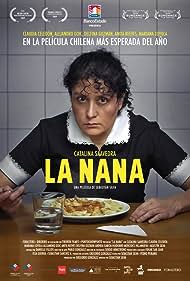I first heard the story in 2006, when I was traveling for six months in Africa and South Africa filming short stories for Swedish TV. The purpose was to make six-minute features, and that was initially the idea for the story about Rodriguez. I met Stephen ‘Sugar’ Segerman, the guy who first started to look for Rodriguez in Cape Town, and when he told me the story I was just blown away. It was just so beautiful and touching. Just the one-sentence summary was pretty strong: ‘a man who doesn’t know that he is a superstar’. A while later I heard Rodriguez’s music and then I was completely hooked. I totally fell in love with both the story and the music, and I spent the next four years making the movie.
The project was pitched in a few pitch forums in 2008, including Sheffield Doc/Fest’s Meet Market which is where it got off the ground. As a first-time director, it’s pretty hard to get attention for your project. You can send DVDs and emails to potential funders and investors, but it’s important to meet with people. Pitch forums such as Meet Market are a great way for independent filmmakers to create awareness about their project and to get to meet important contacts and establish professional relations. I would certainly encourage other independent filmmakers to take advantage of them; not just because you can meet people, it also brings a lot of input into your project on a creative level. To talk to people about your project can give birth to new ideas.
There were many challenges I faced in the making of Searching for Sugar Man. It was very hard to get funding; I thought the story was remarkable enough and that it would speak for itself but that wasn’t really the case. When the film was almost completed the Swedish Film Institute—the main funder—dropped out after being supportive for two years. From one day to the next they didn’t like the movie any more; they said it wasn’t good enough for the big screen, and the promised money was withdrawn. So I had to finish the film without any money, basically doing the whole editing, the additional shooting and composing the film score on my own. Only after the film was picked up by Sundance as the opening night film did the SFI come on board again.
It feels particularly great that Searching for Sugar Man has been selected to open this year’s Sheffield Doc/Fest. It all started in Sheffield four years ago, and Sheffield is one of the great documentary festivals in the world. I think a society benefits a great deal from a healthy film scene; often, what sparks your interest in foreign places or new activities are images you’ve seen in the movies. Films create value that is hard to measure in money. I think when the government supports filmmakers it’s never wasted money, not even from a strictly commercial point of view; film gives so much back in terms of inspiration and ideas.
For their part, young filmmakers should try to focus on all the possibilities there are today and what a wonderful time we live in for making films. Today you can do so much with quite cheap stuff; a secondhand laptop and a cheap HD camera is all you need. I used my iPhone filming a few scenes in Searching for Sugar Man, and the quality was good enough. The grading inside Final Cut or Avid is certainly capable of making a master suitable for the big screens. I went to one of those expansive post houses and was amazed how small the difference was between their super-expensive machines and the stuff you get on your laptop! The original score for Sugar Man was made on budget music software. So if you struggle to get funding for your first project—as you most probably will—just do it anyway! When you don’t get all the money you want you need to come up with other solutions, and that’s often when you come up with the really smart idea.
This piece was originally published in movieScope #29 (July/August 2012).













